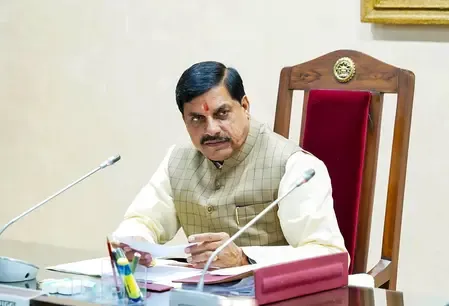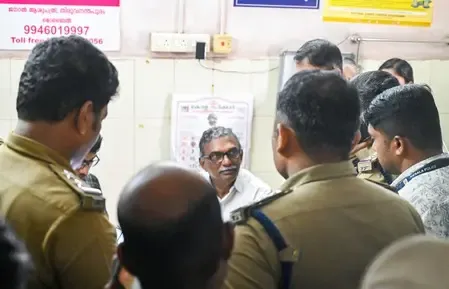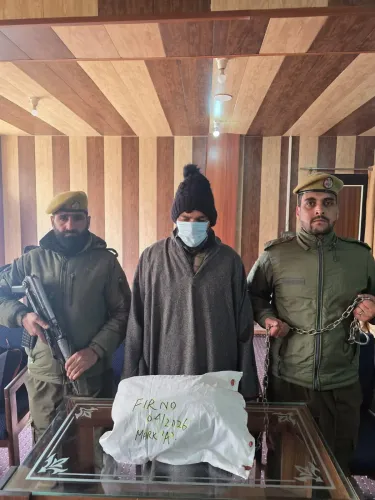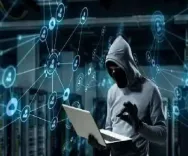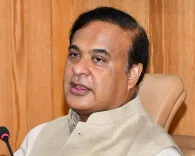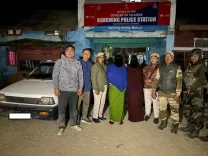Has the Army Taken Over Law and Order in Nepal?
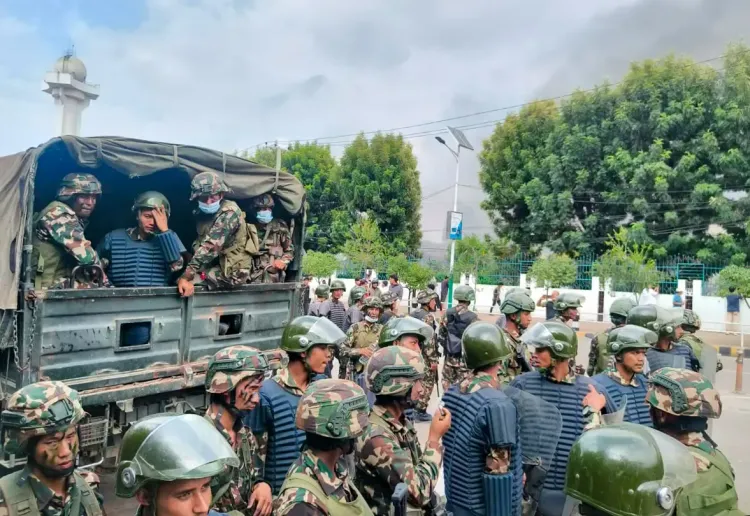
Synopsis
Key Takeaways
- Nepali Army has taken control of law and order amid protests.
- Nationwide curfew imposed due to rising unrest.
- Essential services allowed to operate under curfew.
- Army warns against vandalism and criminal activities.
- Continued discussions with Gen Z regarding political future.
Kathmandu, Sept 10 (NationPress) The Nepali Army has taken on the crucial role of ensuring law and order, following the announcement of a nationwide curfew on Wednesday, which will remain in effect until Thursday morning. This action was prompted by the escalating threat of unrest within the nation.
According to the Local Administration Act 1971, the civilian authority known as the District Administration Office, operating under the Home Ministry, had been responsible for enforcing the curfew until this point.
Amidst the chaotic scenes of Wednesday's Gen Z protests, which resulted in considerable damage to government and private properties, the Nepal Army declared on Wednesday night its commitment to restore order across the country.
Highlighting the necessity for maintaining peace, security officials indicated that the prohibitory order imposed on Wednesday would persist nationwide until 6 a.m. the following day.
Further extensions will be evaluated based on the developing circumstances.
"It has been observed that various anarchist individuals and groups have infiltrated and are engaged in activities such as vandalism, arson, looting, and attempts at targeted attacks on individuals, under the name of the movement, and there remains a possibility of such incidents occurring," the Army clarified in a statement on Wednesday.
The Army personnel are present on the streets, making announcements regarding the enforcement of the curfew.
As per the Army's statement, essential service vehicles, including ambulances, hearses, fire brigades, transport for health workers, and sanitation vehicles, will be allowed to operate during the restrictions. Authorities have requested coordination with local security forces to ensure smooth operations.
The Army has additionally warned that any acts of vandalism, looting, arson, or attacks on individuals and properties carried out under the guise of protests will be considered criminal offenses, with stringent actions to be taken by security forces.
On Wednesday night, the Nepal Army issued a notice confirming its takeover of law and order responsibilities starting from 10 p.m. on Tuesday and subsequently announced the curfew order on Wednesday.
In related news, local media reports indicate that the Army has requested a list of names from Gen Z for discussions regarding the future political direction of the nation following the resignation of Prime Minister KP Sharma Oli.
In a social media update, the Army reported that 27 individuals allegedly involved in destructive, anarchic, and disorderly activities—such as looting, arson, and attempts to harm life and property—were arrested by Wednesday morning.
Moreover, three fire engines have been dispatched to manage incidents of arson.
The fires set at the Singh Durbar building, the principal administrative center of the Nepal government, and at the Supreme Court continued to blaze until Wednesday morning, according to local media.
Firefighters were deployed to the Supreme Court on Wednesday morning to extinguish the ongoing fire.



